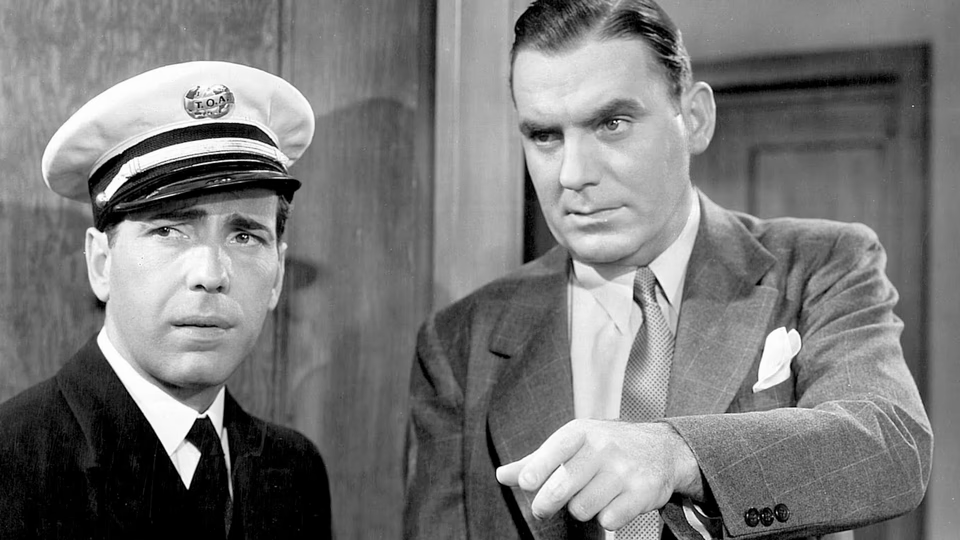China Clipper

Pat O’Brien plays an early aviation magnate who overcomes personal and professional setbacks to build the first trans-Pacific airline.
The script by former Navy pilot Frank “Spig” Wead shines conveying the engineering and logistical problems involved in large-scale aviation, but struggles with relatable storytelling. His characters talk in exposition-laden monologues that seem more like speeches directed at the audience instead of conversation with the other performers.
Consider this line when O’Brien quits his steady office job saying, “When a man believes in something, that’s what he aught to do. I believe aviation’s going someplace. When it gets there, I wanna be with it!”
O’Brien spouts this kind of pro-aviation propaganda the entire film. In a later scene that made me chuckle, a federal inspector stands poised to shut down O’Brien and company on the eve of a landmark test flight. O’Brien makes a fiery argument and the inspector says, “You fellas make some pretty speeches. You appeal to my better nature. I’m not one to stop the wheels of progress. I’ll give you a break this time.”
The film proceeds in this manor. O’Brien and company take a step forward, suffer a setback, regroup and progress again. As the setbacks pile up, O’Brien grows callous and disconnected from his people. I found it hard to sympathize with his character.
O’Brien’s robotic delivery doesn’t help. He conveys the myopic obsession necessary to persevere, but not the inherit passion. The result renders his character more obstinate than noble. And the script proffers no scenes showing O’Brien’s love of flying. As a result, he seems more enamoured with owning an airline than being airborne.
The supporting cast fare better. Beverly Roberts turns in a Hawksian performance early as O’Brien’s wife, leaving him rather than put up with his egomaniacal behavior. Ross Alexander shines as O’Brien’s World War I fighter-pilot buddy, injecting a much-needed dose of color next to O’Brien’s monotone. Humphrey Bogart plays another of O’Brien’s war buddies, but disappears for a chunk of the film after O’Brien’s tyrannical behavior drives him away.
By the third act, O’Brien had exhausted my sympathies, and I’d began turning on the supporting cast. After Roberts attempts to reconcile for the second time, O’Brien rebuffs her, saying with self-righteous condescension, “Half the time, I wouldn’t know if you were for me or against me.” At this point, I began to resent her for trying.
In the end, O’Brien succeeds, of course, and everyone apologizes for not believing in him. But what about the collateral damage? Credit the film for showing it, but what’s the message? That the ends justify the means? Or that O’Brien’s callous behavior was a noble sacrifice? Whatever it’s selling, I’m not buying.